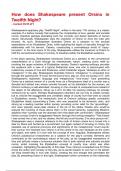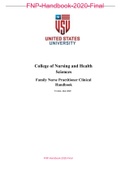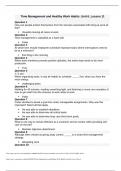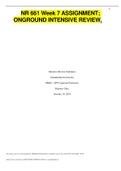Essay
A Level Edexcel English lit Paper 1 - A* Twelfth Night Orsino Essay
'Explore how Shakespeare presents the character of Orsino in Twelfth Night' -received full marks from teacher (35/35), strong essay which includes key quotes and analysis, strong context and links to critics. -perfect for revision, I received an A* in English lit in the 2022 exams.
[Show more]







